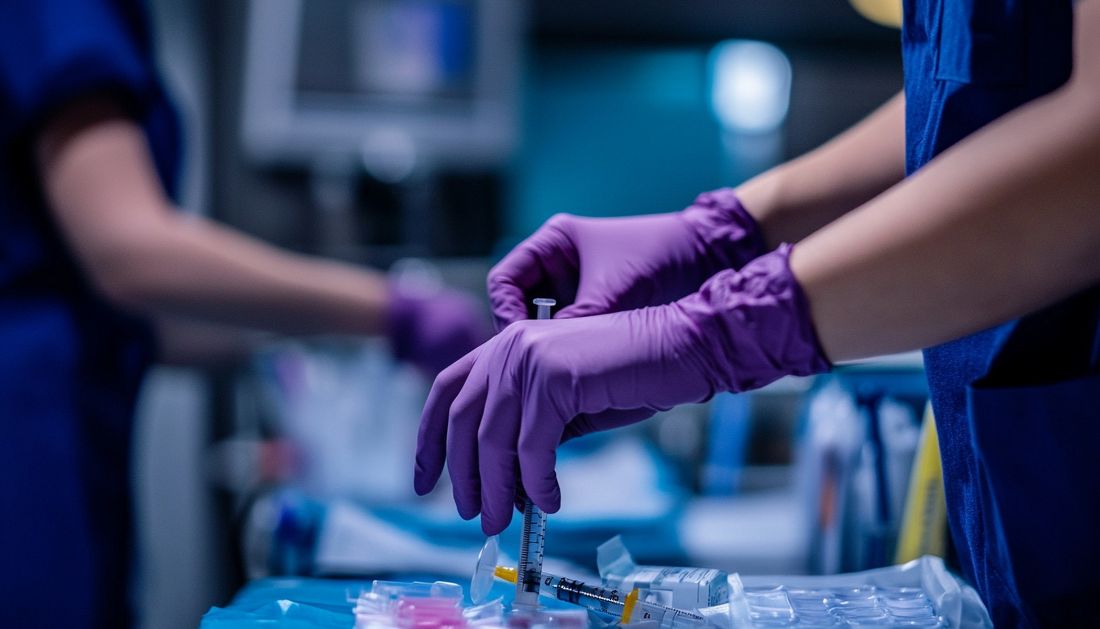

A groundbreaking project from the University of South Australia (UniSA) is set to transform how gastrointestinal (GI) cancers are detected and treated. Backed by a $405,050 AEA Ignite Grant, researchers are developing a quantum technology-based laparoscopic probe that enables surgeons to more precisely locate cancerous lymph nodes—minimizing tissue removal and improving recovery.
Quantum Technology in Cancer Surgery: How It Works
The probe integrates state-of-the-art quantum sensors with Ferronova’s iron-oxide nanoparticle formulation (FerroTrace) to detect cancer spread more accurately. Unlike traditional surgical methods that often involve removing large sections of tissue—leading to complications and long-term side effects—this innovation supports safer, minimally invasive procedures.
“By embedding quantum sensors into a laparoscopic probe, we aim to make surgeries more targeted and less traumatic for patients,” says Dr. Nicole Dmochowska, lead researcher at UniSA’s Future Industries Institute.
Clinical Promise and Market Potential in Cancer Surgery
The research team has already proven the feasibility of quantum sensor magnetometer probes in a successful oral cancer clinical trial. This next phase focuses on miniaturizing the technology for laparoscopic surgeries.
With GI cancers among the deadliest globally, and the global market for precision cancer tools projected to surpass $2 billion annually, the commercial and clinical potential is enormous.
Quantum Technology in Cancer Surgery: A Safer, Smarter Approach
Unlike current lymph node mapping methods that rely on radioactive tracers, the quantum probe and FerroTrace offer a safer alternative, especially for patients undergoing chemo or radiation before surgery.
“This could be a paradigm shift in cancer treatment,” says Dr. Aidan Cousins, senior researcher at Ferronova. “It’s about giving patients better outcomes and a better quality of life.”
Preclinical Trials for Quantum Cancer Surgery Technology
The next step: develop a fully functional, validated prototype for large animal trials, a key milestone before human clinical trials. This project aligns with Australia’s national priorities in both medical innovation and quantum technology, and could shape the future of cancer surgery worldwide.
For more information: University of South Australia
more recommended stories
 Dietary Melatonin Linked to Depression Risk: New Study
Dietary Melatonin Linked to Depression Risk: New StudyKey Summary Cross-sectional analysis of 8,320.
 Chronic Pain Linked to CGIC Brain Circuit, Study Finds
Chronic Pain Linked to CGIC Brain Circuit, Study FindsKey Takeaways University of Colorado Boulder.
 New Insights Into Immune-Driven Heart Failure Progression
New Insights Into Immune-Driven Heart Failure ProgressionKey Highlights (Quick Summary) Progressive Heart.
 Microplastic Exposure and Parkinson’s Disease Risk
Microplastic Exposure and Parkinson’s Disease RiskKey Takeaways Microplastics and nanoplastics (MPs/NPs).
 Sickle Cell Gene Therapy Access Expands Globally
Sickle Cell Gene Therapy Access Expands GloballyKey Summary Caring Cross and Boston.
 Reducing Alcohol Consumption Could Lower Cancer Deaths
Reducing Alcohol Consumption Could Lower Cancer DeathsKey Takeaways (At a Glance) Long-term.
 NeuroBridge AI Tool for Autism Communication Training
NeuroBridge AI Tool for Autism Communication TrainingKey Takeaways Tufts researchers developed NeuroBridge,.
 Population Genomic Screening for Early Disease Risk
Population Genomic Screening for Early Disease RiskKey Takeaways at a Glance Population.
 Type 2 Diabetes Risk Identified by Blood Metabolites
Type 2 Diabetes Risk Identified by Blood MetabolitesKey Takeaways (Quick Summary) Researchers identified.
 Microglia Neuroinflammation in Binge Drinking
Microglia Neuroinflammation in Binge DrinkingKey Takeaways (Quick Summary for HCPs).

Leave a Comment